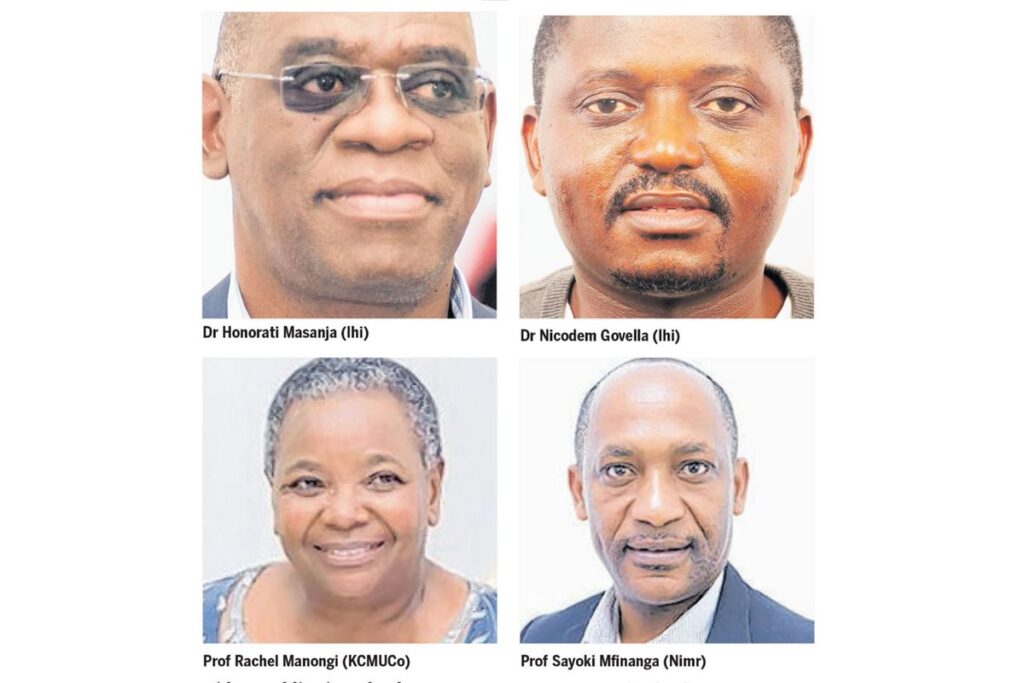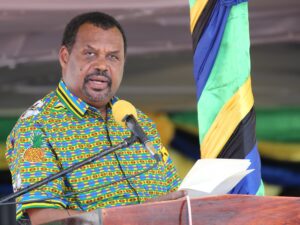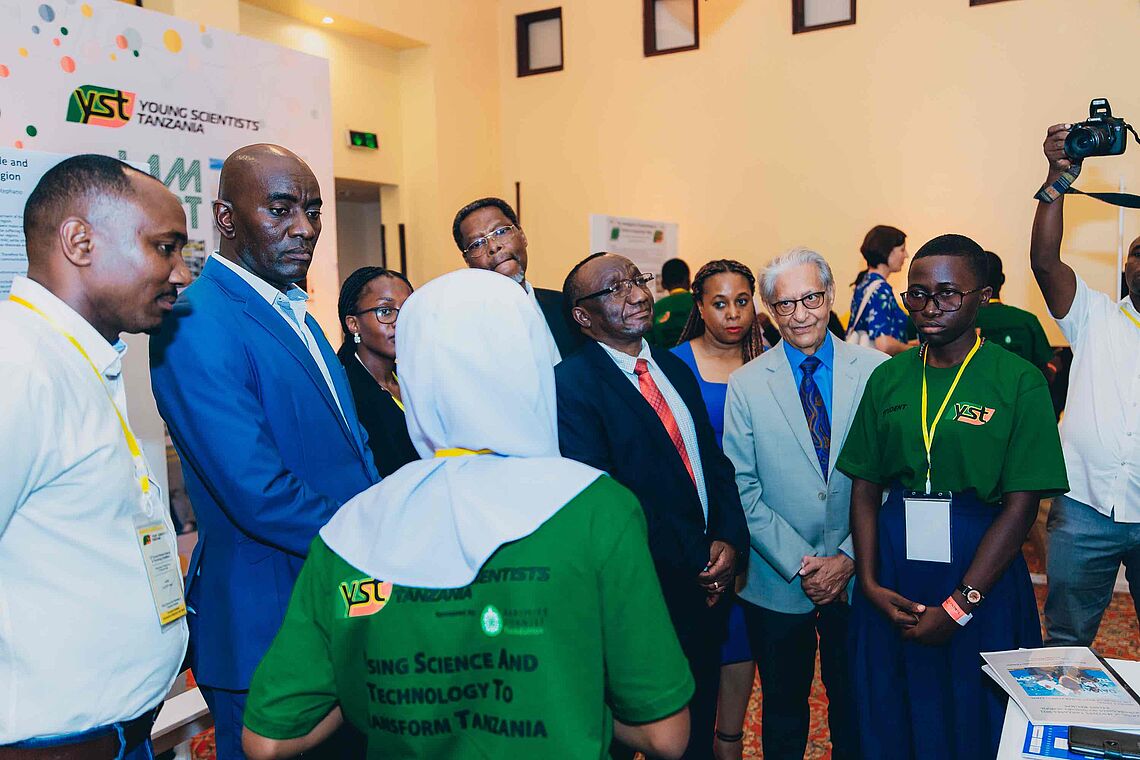Dar es Salaam.
Tanzania imeshika nafasi ya pili Afrika Mashariki na ya tisa kati ya nchi kumi bora barani Afrika zenye wanasayansi bora waliotoa mchango mkubwa katika ulimwengu wa sayansi, kwa mujibu wa orodha iliyotolewa na jarida la kimataifa la sayansi (AD Scientific Index 2023).
Duniani, Tanzania ni miongoni mwa nchi 100 vinara zenye wanasayansi bora, hivyo imeshika nafasi ya 96 kutokana na kazi nzuri ya wanasayansi 10 kutoka Taasisi ya Afya ya Ifakara (Ihi). Taasisi hiyo imeshika nafasi ya kwanza kati ya vyuo vikuu/taasisi 55 nchini zilizofanyiwa tathmini.
Wanasayansi 10 ni pamoja na Mkurugenzi Mtendaji wa taasisi hiyo Dk Honorati Masanja ambaye machapisho yake 103 yalivutia nukuu 6,691. Wengine ambao machapisho na nukuu viko kwenye mabano ni Dk Sarah Moore (machapisho 96 , nukuu 5,997).

Dk Fredros Okumu (machapisho 95, nukuu 5,240), Dk Nicodem Govella (machapisho 38, nukuu 2,890), Dk Ally Olotu (machapisho 36, nukuu 3,366) na Dk Eveline Geubbels (machapisho 46, nukuu za 2,051).
Wanasayansi wengine ni Dk Dickson Wilson (machapisho 27, nukuu 1,599), Dk Samson Kiware (machapisho 30, nukuu 1,160), Halfan Ngowo (machapisho 29, nukuu 944) na Dk Dominic Mosha (machapisho 22, nukuu 885).
Kwa mujibu wa jarida hilo, mfumo wa upangaji viwango ulizingatia idadi ya wanasayansi waliobobea na kwamba vigezo mbalimbali vilitumika kuziorodhesha nchi hizo. Ya kwanza ilitokana na idadi ya wanasayansi katika orodha ya asilimia mbili bora ambapo kigezo cha pili kiliamuliwa na idadi ya wanasayansi katika asilimia 10 bora, asilimia 20 ya juu, asilimia 40 ya juu, asilimia 60 ya juu na orodha ya juu ya asilimia 80.
Wakati vigezo vya mwisho vilivyotumika viliamuliwa na idadi ya wanasayansi walioorodheshwa kwenye jarida la kimataifa la sayansi la AD na kwa upande wa usawa baada ya kutumia vigezo vyote vitatu, kiwango cha ulimwengu cha mwanasayansi mahiri wa nchi husika, kilitumika.
Kiutendaji, waandaaji wa jarida hilo walichambua tafiti za kitaaluma kutoka nchi 216, na vyuo vikuu/taasisi 19,525, na wanasayansi 1,223,175 kwa kutumia vigezo vingi kuwasilisha matokeo yatakayotumika kutathmini tija na ufanisi kwa watu binafsi na taasisi.
Ripoti hiyo imebainisha taasisi 10 bora za kitaaluma na utafiti za Tanzania kwa kuzingatia sifa za kisayansi za wanasayansi washirika.
Orodha hiyo ambayo kwa hadhi zao imetawaliwa na taasisi za umma ni pamoja na Ihi, Muhas, Sua, Nimr, NM-AIST, CUHAS Bugando, Chuo Kikuu cha Dar es Salaam (Udsm), KCMUCo, Chuo Kikuu cha Mzumbe (Mu) na Chuo Kikuu cha Dodoma (Udom).
Kuhusu wanasayansi 10 bora nchini wenye tija katika kuchapisha kazi za thamani za kisayansi, jarida hilo liliwataja Profesa Rudovick Kazwala (Sua), akifuatiwa na Profesa Sayoki Mfinanga (Nimr).
Wengine ni Dk Honorati Masanja (Ihi), Profesa Stephen Mshana (CUHAS Bugando), Dk Sarah Moore (Ihi) na Profesa Patrick Ndakidemi ( NM-AIST). Wanasayansi wengine kwa mujibu wa utafiti huo ni Profesa Karim Manji (Muhas), Dk Fredros Okumu (Ihi), Dk Bruno Sunguya (Muhas) na Profesa Rachel Manongi ( KCMUCo).
Share this news
This Year’s Most Read News Stories

Zanzibar introduces $44 insurance fee for visitors
Visitors travelling to Zanzibar will now have to pay an insurance fee of $44 (about Sh118,360) with effect from September 1.Continue Reading

ZSSF money not for projects, says Ali Karume
Unguja. Veteran politician and diplomat Ali Karume has called on authorities of the Zanzibar Revolutionary Government (SMZ) to refrain from using the Zanzibar Social Security Fund money for establishing commercial projects.Continue Reading
John Okello: From Zanzibar revolution icon to street beggar
In the final episode, we look at Okello’s ban in Tanganyika, rejection in Kenya tragic end in Uganda.Continue Reading











